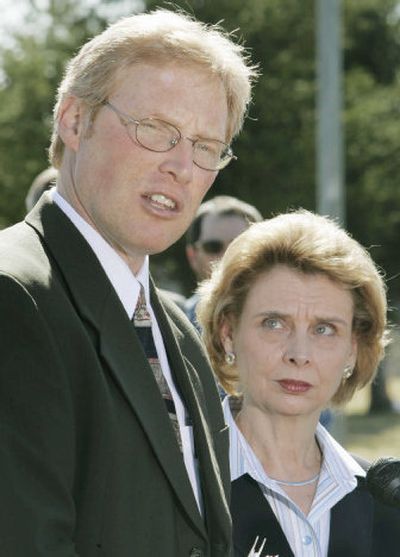Governor’s Cabinet receives heftier paychecks

OLYMPIA – Gov. Christine Gregoire’s Cabinet is loaded with old Olympia hands, and collectively they’ll earn $256,000 more than Gary Locke paid his top directors.
The Democratic governor campaigned on a platform of “changing the culture” in Olympia, but about two-thirds of her Cabinet and senior managers are longtime state employees and Olympia insiders. Six Cabinet directors and her chief of staff are holdovers from the Locke administration.
Dick Davis, of the Washington Research Council, called it “another round of musical chairs in Olympia.”
An analysis by the Seattle Times showed that all but three of the governor’s top 23 Cabinet directors will be making more than Locke paid their predecessors, including five who are making at least $20,000 more a year and another six who are earning at least $10,000 more.
In some cases, the increases go atop raises that Locke had secured for the positions before he left office. In the past two years, the average salary for Cabinet positions has gone from about $108,000 to nearly $125,000, almost a 16 percent increase.
Gregoire herself is in line for a 4 percent pay raise over the next two years, to $150,995, as set by a citizen pay board.
Gregoire’s chief of staff, Tom Fitzsimmons, said the pay raises were long overdue and that salaries lag far behind the private sector and local government.
Some new directors, such as Ecology Director Jay Manning, are taking pay cuts to come to Olympia, Fitzsimmons said. Gregoire’s personnel recruiter, Mary Riveland, said some prospective Cabinet appointees rejected her overtures because salaries aren’t strong enough.
“We wanted to hire and retain the best people we could for these positions and frankly, when the recruiting began, we were behind clearly in our ability to compete,” Fitzsimmons said.
Riveland and Fitzsimmons said the high local government salaries made it necessary to boost the state positions to at or near the top allowed under a salary schedule set by a seven-member State Committee on Agency Officials’ Salaries.
Davis agreed that the local government salaries are a problem for state recruiters, but disagreed with comparing agency directors’ pay with comparable executive posts in the private sector. Public service, and not pay, should motivate Gregoire’s appointees, he said.
“At the senior executive level, state government is never going to be competitive with the private sector,” Davis said.
“It does raise some eyebrows,” said Senate Minority Leader Bill Finkbeiner, R-Kirkland.
“Given our state’s budget situation and given the fact that most of these people were already working in state government, it seems unnecessary to be giving them big pay raises.”
Robin Arnold-Williams, secretary of the Department of Social and Health Services, and budget director Victor Moore, are earning $150,000, considerably more than their predecessors.
The new prison director, Harold Clarke, is making $135,000, about $27,000 more than his predecessor got.
Two holdovers, Trade Director Juli Wilkerson and Health Director Mary Selecky, got $20,000 raises.
Tim Welch, spokesman of the Washington Federation of State Employees, said there might be a silver lining for the workers he represents.
“It will certainly bolster our position next time we go to the bargaining table,” he said. “We’ll be able to say, ‘We got 3.2 percent our first year, you guys got 15 percent.’ “
The Times study showed that 21 of Gregoire’s Cabinet directors had previous government experience, including 16 from Washington state, and that eight had private sector experience.
The average salary is about $125,000. Gregoire has hired 10 women directors, three more than Locke had last year, and seven minority appointees, the same as Locke. More than half of the directors contributed to her campaign.